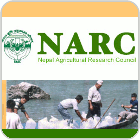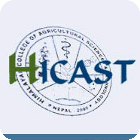Plant breeding programs in Nepal
Nepal is a small and land-locked country. A country which was not only self-sufficient in food production but also exporting until the 1980s, is now facing food deficits leading to widespread malnutrition, especially among children. Consequently, agricultural development has been receiving national priority in the policy of the government. Agriculture is the backbone of the national economy and supports the livelihood of the majority of the Nepalese population.
The establishment of the Department of Agriculture in 1924 initiated research and extension activities for agricultural development. Today, there are 24 public sector organizations in the country that undertake research in plant breeding while only five in biotechnology, involving a wide variety of crops. Currently, there are virtually no private sector organizations in plant breeding.
The five most important commodity research programmes are rice, maize, wheat, potato and sugarcane. There is increasing demand for high and stable yielding varieties resistant/tolerant to various biotic and abiotic stresses that meet specific user needs. However, the decreasing trend of resource availability (funds and scientists) has been responsible for the decreased number of varieties released in recent years.
The two main limiting factors for Nepal’s plant breeding activities are the inadequate number of breeders for each crop and the lack of financial resources to carry out field and laboratory experiments.
Research and education institutes with activities in plant breeding
Public Institutes
 |
Nepal Agricultural Research Council (NARC)
|
 |
Institute of Agriculture and Animal Science (IAAS), Tribhuvan University (TU)
|
Private Institute
 |
Himalayan College of Agricultural Sciences and Technology (HICAST)
|
______________________________________
Information by Bindeshwar P. Sah and Parashuram L. Karna (2009) - Information based on the Nepal's full report from the PBBC survey. Last revised 17-03-2010, GIPB.
